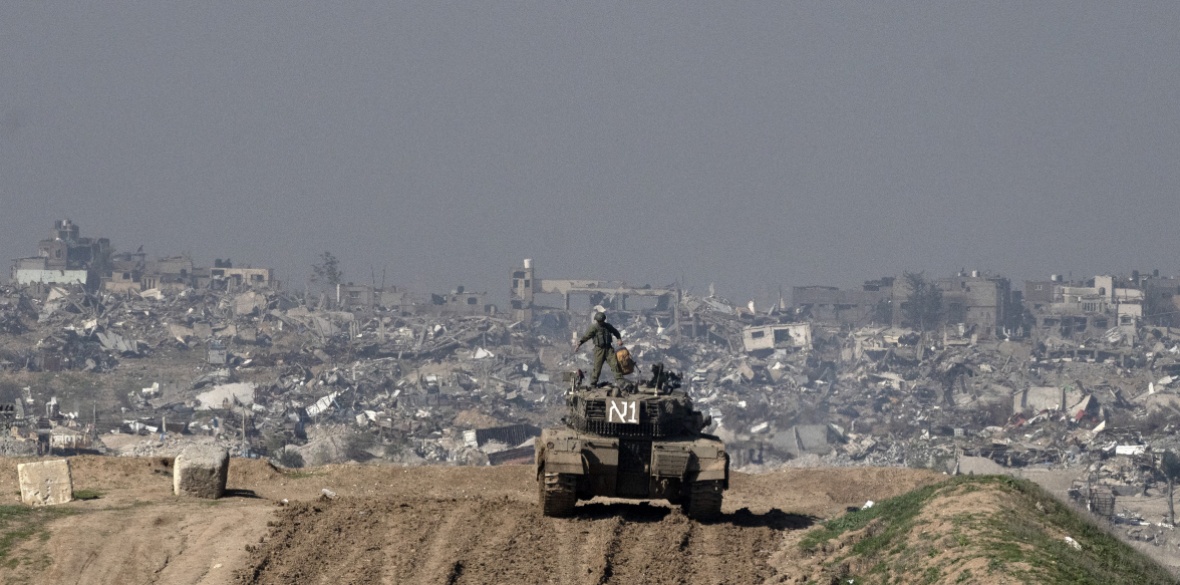This is the last article you can read this month
You can read more article this month
You can read more articles this month
Sorry your limit is up for this month
Reset on:
Please help support the Morning Star by subscribing here
RIFTS have emerged between top Israeli officials over the government’s handling of its brutal war against Palestinians in Gaza.
A member of the country’s war cabinet has cast doubt over the strategy for releasing the dozens of hostages still held by Hamas in Gaza and Prime Minister Benjamin Netanyahu rejected US calls to scale back the offensive.
In his first public statements on the handling of the war, former army chief Gadi Eisenkot said on Thursday that only a ceasefire deal could win the release of the hostages.
The former general turned politician said claims that the hostages could be freed by other means were spreading “illusions.”
The comments by Mr Eisenkot, one of four members of the war cabinet, were the latest sign of disagreement among political and military leaders over the direction of Israel’s offensive against Hamas, which is now in its fourth month.
Sparked by the Islamist movement’s surprise October 7 attack on southern Israel, which left about 1,200 people dead and roughly 250 others taken hostage, the Israeli assault has decimated much of the Gaza Strip, home to some 2.3 million people.
According to Israel, more than 130 hostages remain in Gaza, but not all are believed to be alive.
Israel’s offensive, one of the deadliest and most destructive military campaigns in recent history, has killed nearly 25,000 Palestinians, according to Gaza’s health authorities, and uprooted more than 80 per cent of the territory’s population.
A communications blackout in the territory was in its seventh day today, the longest such blackout since the war began.
Speaking during a nationally televised news conference on Thursday, Mr Netanyahu thumbed his nose at the US by reiterating his opposition to a two-state solution.
He said Israel “must have security control over the entire territory west of the River Jordan.”
The day before, US Secretary of State Antony Blinken said that a two-state solution would be the best way to protect Israel.
Speaking at the World Economic Forum in Davos, Switzerland, he argued that without a pathway to a Palestinian state, Israel would not “get genuine security.”
Meanwhile, Mexico and Chile have asked the International Criminal Court (ICC) to investigate possible crimes against civilians in Gaza and the October 7 Hamas attack.
Mexico’s Foreign Relations Department said in a statement that it had filed the request “because of a growing concern about the recent escalation in violence, especially against civilians.”
Any ICC proceedings would be separate from South Africa’s case at the International Court of Justice accusing Israel of genocide, a charge that Israel denies.











